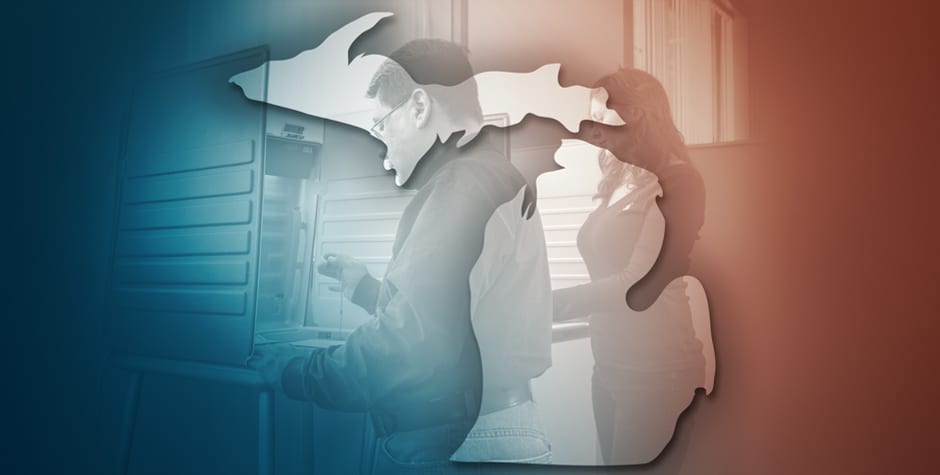Unique, Citizen-Led Effort To Strengthen Election Integrity Launches in One Key State
Citizens across the country want integrity restored in our election processes. There is a very unique, citizen-led effort to do just that taking place in Michigan right now.
Michigan law allows a citizen petition to be presented to the State Legislature, which then has the option to either directly enact the proposal into law – bypassing the governor’s desk – or place it on the next general election’s ballot for the voters to decide.
A group known as Secure MI Vote is currently circulating a petition to strengthen Michigan’s election laws and prevent voter fraud. The petition’s supporters need to obtain roughly 340,000 signatures from registered voters by early 2022 before it may be considered by the State Legislature, which is controlled by backers of the petition.
Should the required number of signatures be obtained, the State Legislature could enact the proposals into law without leftist Governor Gretchen Whitmer being able to veto them as she did with respect to other similar election law reforms. Governor Whitmer’s opposition to election integrity protections is a trend among the Left. As we explained in a prior post, the Biden Administration is currently attempting to block a Georgia law designed to bring about fairer elections.
Some key provisions of the proposals in the Michigan election integrity petition are as follows:
Michigan currently requires a photo ID when voting in person; but if a voter does not have an ID, the voter just signs an affidavit affirming who he is without further proof, and his vote is counted. The petition seeks to change that law by actually requiring a photo ID for in-person voting. If the voter does not have his ID with him or does not have an ID, the voter would cast a “provisional ballot” that is segregated from the other properly cast votes. The voter would then have six days to present himself to his city or township clerk and show his photo ID or other approved documentation for his “provisional ballot” to be processed and tabulated. If the voter does not show up within those six days, his “provisional ballot” is discarded.
Should a voter be unable to afford a photo ID, one of the proposals in the petition creates a $3 million fund to allow the Secretary of State, who administers elections in Michigan, to provide one without charge. This provision addresses any concerns that some people are unable to afford an identification card.
The petition also seeks to prevent government officials from sending or providing absentee voter ballot applications unless the voter first requests one. This provision is in response to Michigan Secretary of State Jocelyn Benson’s unilateral decision during the last presidential election to mail unrequested absentee ballot applications to millions of registered voters, whether they wanted one or not.
Under the petition, should a voter want an absentee ballot, the voter must request one and provide his driver license number, state ID number, or the last four digits of his Social Security number to prove that the voter is actually the one requesting the absentee ballot.
The Michigan petition is intended to create reasonable, non-discriminatory measures to protect the integrity of elections. It is beyond dispute that, without meaningful photo ID requirements, voter fraud can occur more easily.
The ease of voting under someone else’s name—when photo IDs are not required—was famously illustrated a number of years ago in a video of a man who went to the polling place where then-United States Attorney General Eric Holder (an opponent of voter ID requirements) was registered to vote. The man, who looked nothing like Holder, gave the poll worker Holder’s name and address. The man asked whether he needed to show his ID. The poll worker said no and was about to allow the man to vote as Eric Holder when the man left the polling place saying he would feel better if he got his ID.
It will be interesting to see whether the Michigan petition secures enough signatures and is enacted into law by the State Legislature. Should it become law, those on the Left will likely begin litigation to stop it from going into effect before the critical 2022 midterm elections.
The American Center for Law & Justice (ACLJ) will continue to follow this matter as we engage in various ways across the country as part of our Election Integrity Project. You can add your name to our petition defending the Constitution and the integrity of our elections here.
